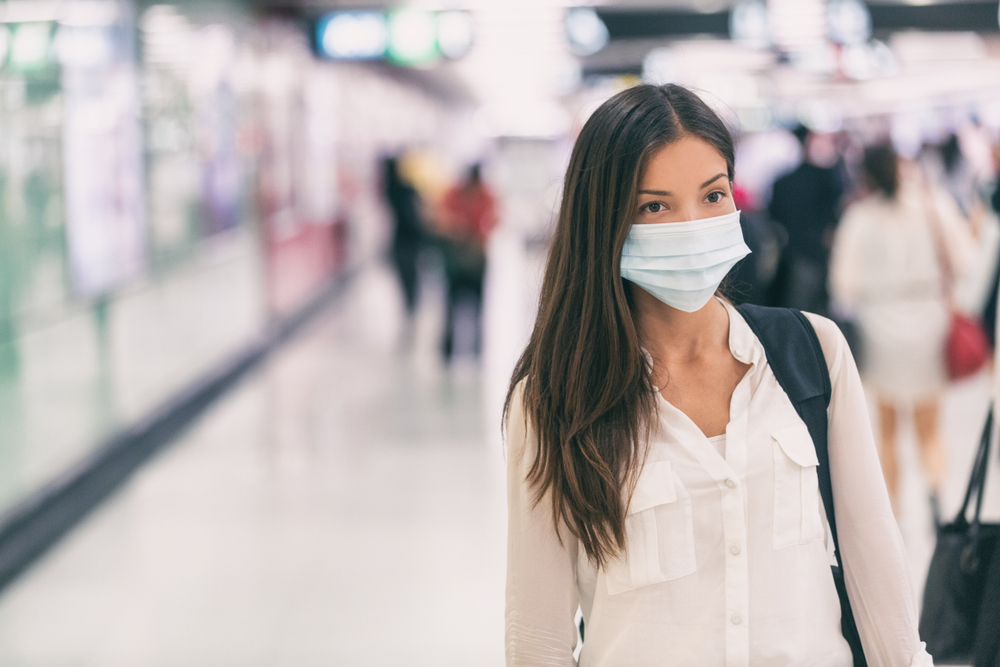Published Dec. 19, 2021 in sfgate.com
By Amy Graff
As the United States braces for a potential omicron surge, you may be asking: Should I cancel or alter my holidays plans?
“No, I would not advise vaccinated people to change their holiday plans due to omicron,” said Dr. Monica Gandhi, an infectious diseases doctor at UCSF.
Gandhi’s response is very different for people who haven’t gotten a COVID-19 vaccination. “I would avoid parties and travel if I were an unvaccinated adult,” she said. “Please get vaccinated if you are not yet vaccinated, as the vaccines are safe and effective.”
Gandhi noted that, although disease-fighting antibodies from a COVID infection or vaccine can wane over time, and the virus can evolve to make it harder for antibodies to bind, they’re not the only line of defense.
“T cells from the vaccine still work against Omicron and B cells (generated by the vaccines) adapt the new antibodies they produce to work against variants,” Gandhi explained in an email. “Therefore, we see that mild symptoms can still occur (with antibodies being the main protective modality in the nasal passages), but the vaccines are still protecting omicron-infected individuals from severe disease.”
The omicron variant, a strain of SARS-CoV-2, the virus that causes COVID-19, spurred a new wave of cases in South Africa in November and is beginning to appear in the United States. While delta remains the dominant variant, the Centers for Disease Control and Prevention released new data Wednesday suggesting omicron cases will increase sharply in January.
Early evidence indicates the variant is highly transmissible, and the Bay Area already saw a mini-outbreak among a group of fully vaccinated, boosted employees of Kaiser Permanente’s Oakland Medical Center. None of the staffers seemed to have passed it on to anyone, and they all had mild symptoms, according to a statement from Kaiser.
“The omicron variant may be more transmissible, but all the data so far is pointing to this variant being more mild” than earlier strains, said Gandhi.
Despite that hopeful message, there’s been a lot of conflicting information. So we asked the experts how vaccinated people should think about parties and travel during the next few weeks.
Can vaccinated people attend holiday parties and feel safe?
Vaccinated people should feel comfortable attending indoor holiday parties at friends’ homes and removing masks if everyone is vaccinated and not having any symptoms, Gandhi said. That includes elderly relatives, along with anyone who is immunocompromised or who has multiple medical conditions — especially if they’ve gotten a booster shot.
Dr. Peter Chin-Hong, an infectious diseases doctor at UCSF, advised that people hosting holiday gatherings, dinners and reunions with a mix of vaccinated and unvaccinated people move them outdoors. If you decide against asking people about their vaccine status, you should probably assume some of them are unvaccinated, and keep the festivities outside. Asking everyone to take a rapid antigen test can be used for additional security, Chin-Hong said. Over-the-counter tests can be purchased online or at most pharmacies and give you results in 15 minutes. They’re not as reliable as PCR tests, but you can take them at home, and they’re likely to catch anyone who’s at their most contagious.
“You can consider, who’s elderly, unboosted, immunocompromised?” Chin-Hong said. “Are there kids under 5? Those are the factors that might push you into additional testing.”
You can also check your local public health orders for guidance on indoor private gatherings. For example, while San Francisco doesn’t require individuals hosting private events in their homes to confirm the vaccination status of guests, the public health department recommends masks regardless of vaccination status when different households are mixing indoors.
Should vaccinated people alter their holiday travel plans?
Both Gandhi and Chin-Hong also encouraged vaccinated people to keep their travel plans, whether road tripping or hopping on a plane.
“For vaccinated people, especially if you’re boosted, I think you can travel with confidence this year,” Chin-Hong said. “You have to travel with COVID smarts, thinking about who you are, where you’re going. Look at the vaccination status of the community where you’re going. Is [COVID-19] surging? If it is, it doesn’t mean you don’t go, but it means you should be more careful with crowded indoor settings.”
What if you’re traveling with kids 4 and under who can’t be vaccinated?
Gandhi said she considers travel with young kids to be safe. “Children under 4 are very low-risk for COVID, and omicron seems to be even more mild of a variant,” she said.
Chin-Hong added that families should consider whether any of their kids have pre-existing conditions when making their decisions: “Think about the risk factors for kids getting ill … the kids getting sick are those with neurological diseases or who are immunocompromised. You may be more careful with that child.”
Gandhi noted that travelers should key into restrictions and requirements around travel, as some places are clamping down in response to omicron. Some countries may require you to provide a negative COVID test before arrival, regardless of vaccination status. “You might want to check ongoing travel bans and travel restrictions to ensure that these don’t ruin your trip,” she added.




